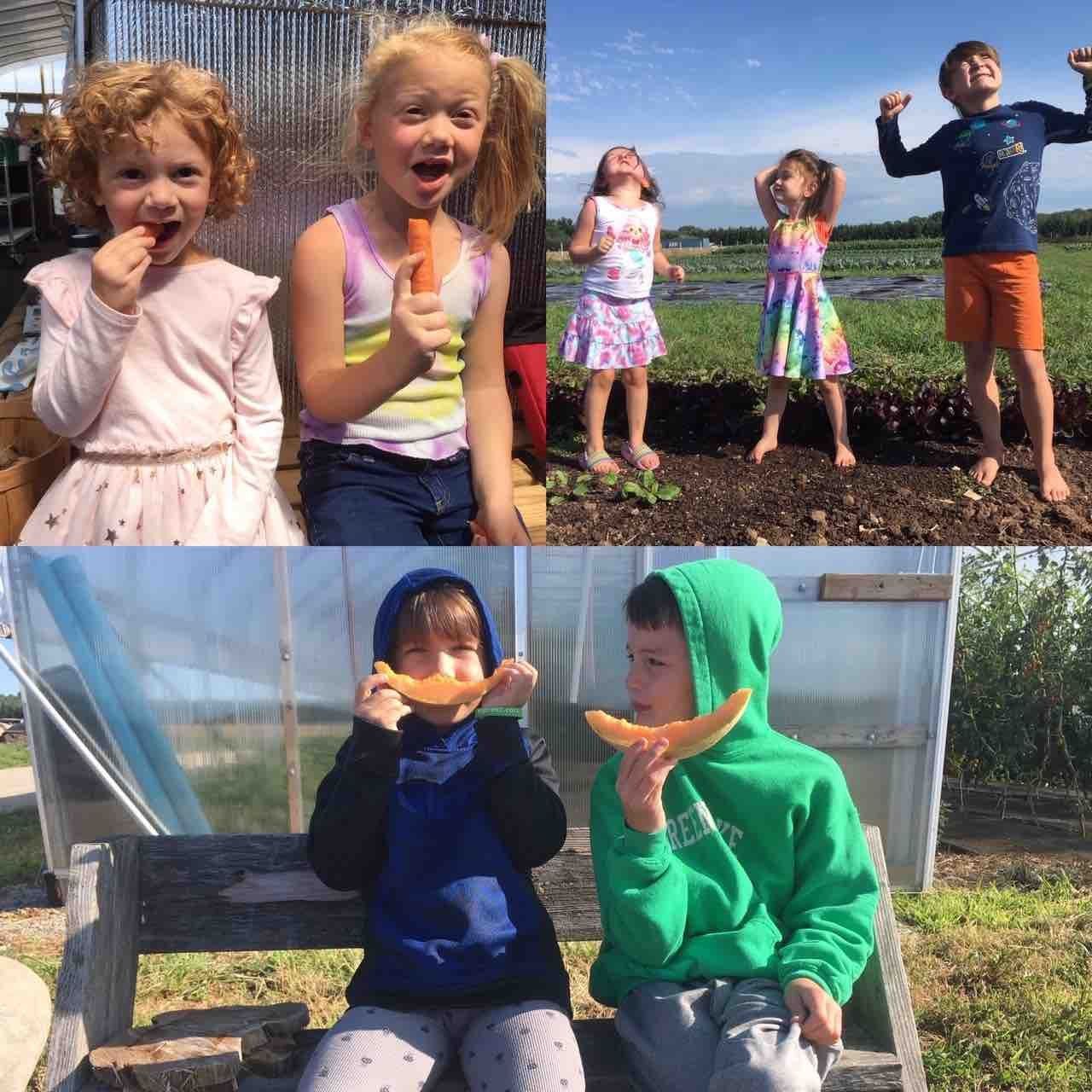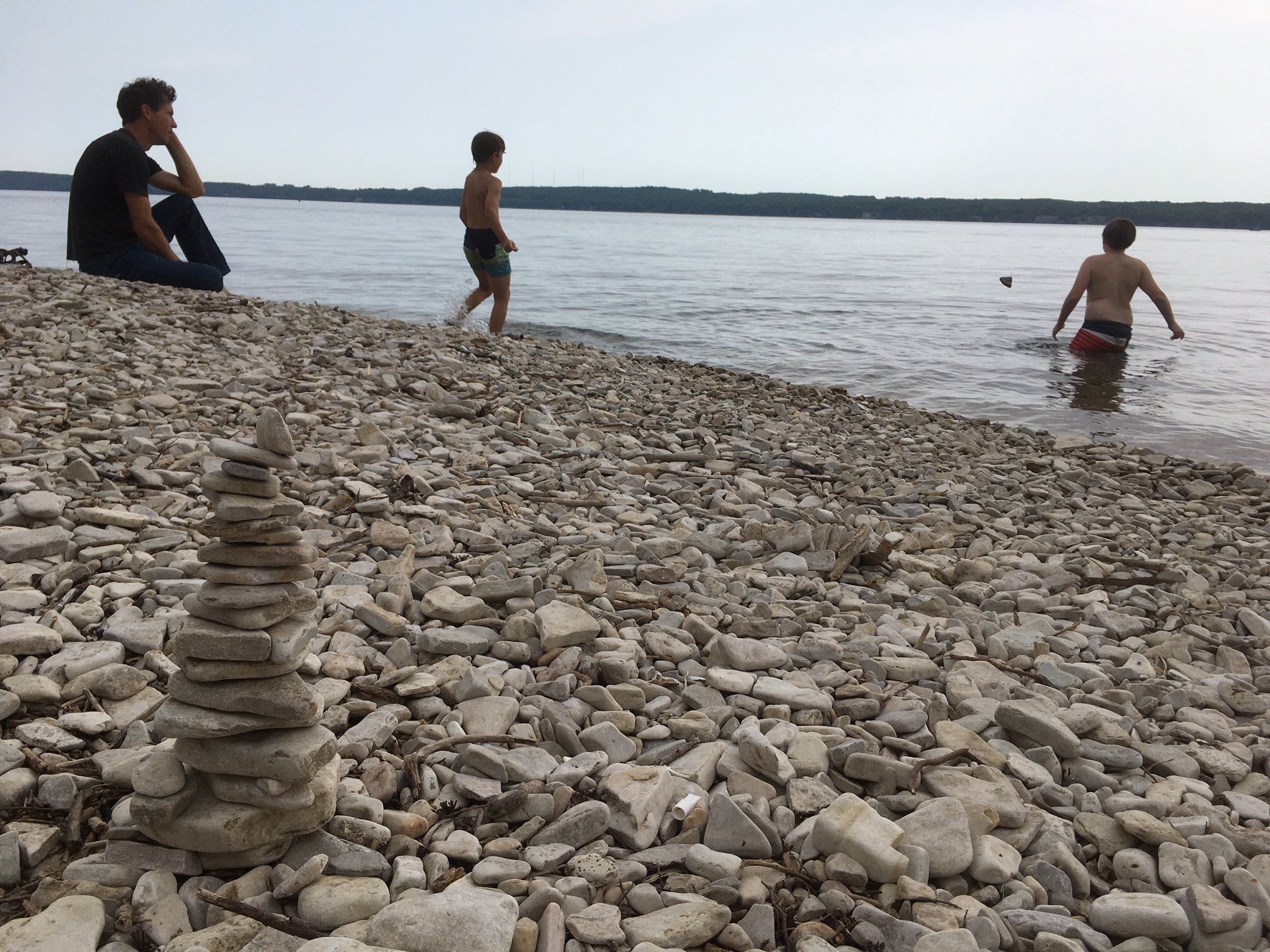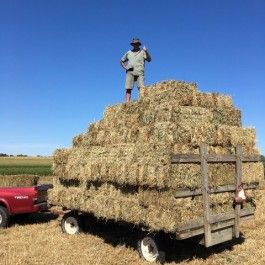This past week was a busy one around the farm. As the summer heat rolls on and the dust kicks up for lack of rain, we have been irrigating like crazy. The veggies are hanging in there, but the rest of the farm is starting to look thirsty. A month without rain feels like a lemon, but we've managed to make a little lemonade all the same.
The dry days of August and September are when many farmers round these parts take to the marshes to harvest what we call marsh hay, mainly consisting of the prolific and water loving reed canary grass. According to the herbarium at the University of Wisconsin Green Bay, "Reed Canary Grass (Phalaris arundinacea L.) is perhaps the worst invasive species in Wisconsin, to date. It forms dense, nearly pure stands that displace all other species from large areas of wetlands, especially sedge meadows." This is bad news for our native marsh species, but not so bad for a farm. It is a suitable horse feed and works great for mulching and bedding, which is why years ago many farms planted the grass in wet areas. The DNR even intentionally planted this invasive species to control erosion, but unfortunately the fix was perhaps worse than the original problem.
Like it or not, reed canary grass is here to stay because it is very difficult to eradicate, so better to at least put it to good use. Our good friend, Jörg, worked his heart out stacking not 1, not 3, but 5 loads totaling almost 700 bales from a 4 acre field...that's a lot of lemonade! The bales will feed the farm horses this winter, mulch our fall garlic planting, provide bedding for the chickens, and keep my heart rate up for months to come. We are grateful for full wagons, strong help, and even the dry days that made this harvest possible.
-Mat




